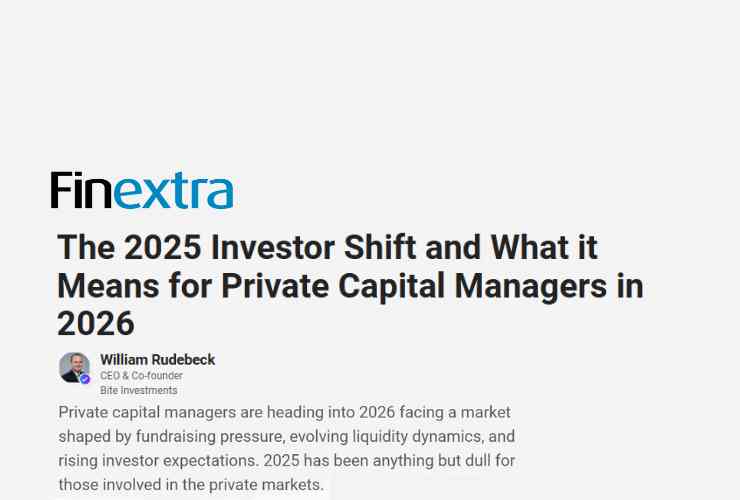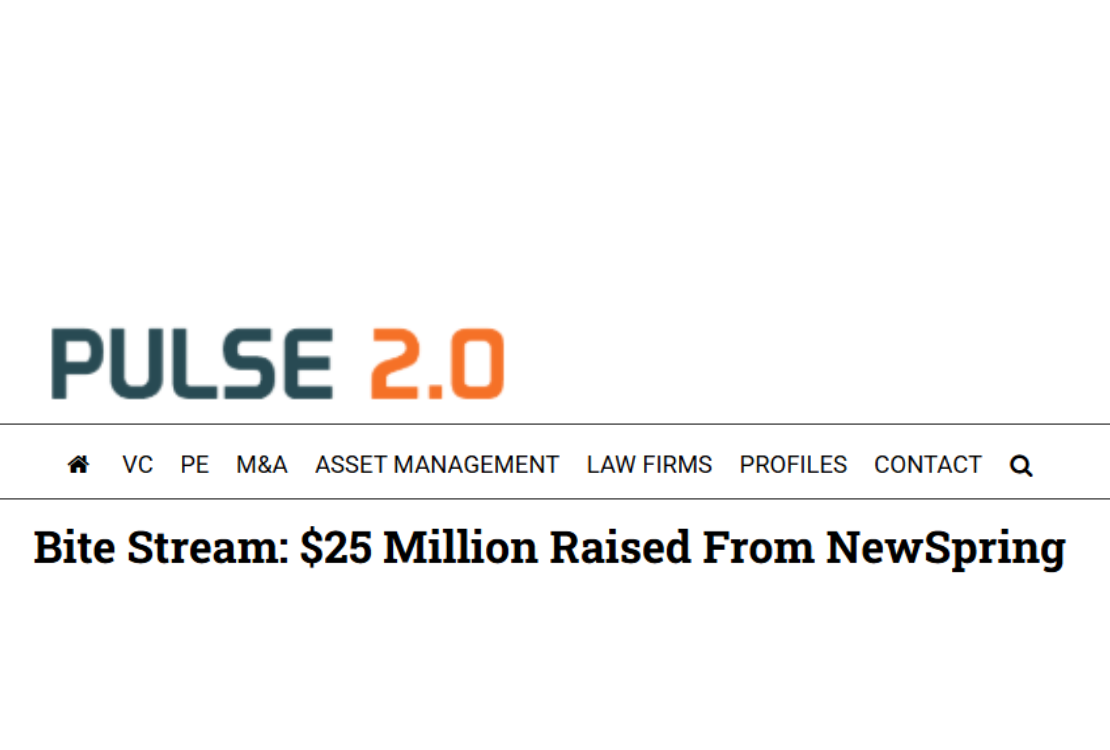Report Findings
Bite Investments has released a report in association with Mergermarket concluding that enhanced data access and operational efficiencies are the main drivers for digitalisation among investment firms. The report, titled “The Tech’s Factor: The digitalization of private markets in 2022 and beyond” reveals how digitalisation is shaping the private capital industry and how fund managers are adopting to tech, for what purposes and how the size of a firm can be a determining factor in speed, success, and satisfaction.
The report surveyed US senior executives from middle market, boutique funds, and asset managers on the topic of digitalisation of the private markets. The research revealed that it is crucial to be ahead of the game when it comes to digital adoption. 90 per cent of firms with AUM of more than $1billion agree that keeping ahead of the game in regard to technological capabilities at their organisation is a top priority.
“Investors are arguably the most important part of the private capital ecosystem. Therefore, catering to their desires and demands is an absolute priority for alternative asset managers. Digital adoption is needed to help enhance this client onboarding”, said William Rudebeck, CEO Bite Investments.
“There are great expectations for digital growth. We found that big firms are much further along in terms of digital adoption and how this will be applied to their value chains. This means that smaller firms can still capitalise on a first-mover advantage among peers,” said John West, managing editor EMEA at Mergermarket.
“The pandemic has been a catalyst for digital adoption in the private capital industry. But regardless of what happens with covid-19, the realised benefits of this change are here to stay. We are not going back to the old ways of doing business”, Rudebeck added.
The report demonstrates what a digital future would look like for the private markets industry. Key findings include:
- External digital investments are expected to increase. Over three-quarters (80 per cent) of larger firms expect to make external digital investments (e.g., to advisors and services providers) north of $1million, with 33 per cent anticipating investments of between $5million and $10million. Smaller firms with AUM of less than $1billion expect to make commensurately smaller investments into external digital investments.
- Portfolio/fund management and analysis, and investor profiles ranked first as firms’ top digital priorities. Larger firms also identified that digitalisation investments will improve investor onboarding, relationship management and communication whereas smaller firms listed due diligence as a top business function to digitalise.
- Cloud/Software-as-a-Service (SaaS) will have the largest impact on how private equity firms operate over the next ten years. For this reason, increased investment in cloud/SaaS solutions are deemed necessary to improve operations. A majority of firms are expecting to invest further into areas in which they have already made progress and investments. These include cloud/SaaS solutions (78 per cent –80 per cent) and social media, mobile and collaborative digital technologies (75 per cent – 83 per cent). The primary benefit of using cloud/SaaS platforms is to streamline operations.
- Third party service providers are used for a wide variety of services. The size of the company often dictates the services needed and prioritised. For instance, 81 per cent of larger firms use a specialist third party software service provider for their due diligence. However, smaller firms are more likely than larger ones to say they currently use third parties for their portfolio/fund management, analysis, and investor profiles.
- Operational efficiencies will be the single most important long-term effect of digitalisation. Operational efficiencies at the portfolio company level are essential to a private capital firm’s value creation playbook. Other long-term benefits respondents most commonly expect from their digital investments include access to enhanced quality and quantities of data (78 per cent of all respondents). Digitalisation projects will not succeed without good, clean data.
“These insights reaffirm that as digitisation accelerates, fund managers will have to adapt to continuous tech evolution. Our mission at Bite Investments opens possibilities in alternative investment markets with digitisation, and a new forward-thinking approach, enabling firms to configure their own digital platform to improve the experience for existing and prospective investors and limited partners”, Rudebeck concluded.




